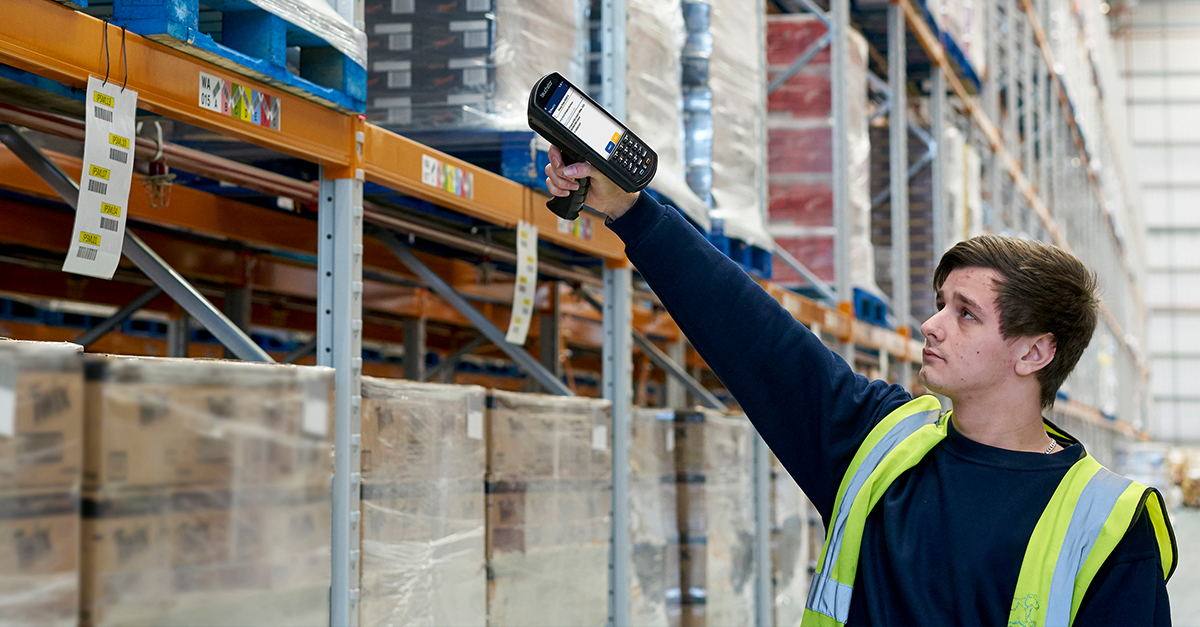Optimised Rugged Mobile Devices Improve Productivity

11 November 2024

In the demanding world of warehouse operations,
leaders will be tasked with maintaining high levels of productivity and uptime.
It’s likely they will be included in a roster of key performance indicators
(KPIs) to measure team performance. These will also be used to help manage
other business metrics like customer satisfaction. For instance,
if
productivity drops, it’s inevitable customer satisfaction will follow.
Optimised rugged mobile devices means optimised
productivity for your workers.
Optimising productivity with the
right rugged mobiles for the job

For many warehouse managers, it is imperative
that they have the right skills and capacity in place. But it’s also essential
that the tools they are given to do their job are fit for purpose.
Rugged mobile devices are commonly used in
warehouse environments. That’s because they are ideal for capturing real
time data related to stock movements, for example. They are also instrumental
in helping teams execute their tasks efficiently, and, in conjunction with a
warehouse management system, manage warehouse processes.
Built to endure heavy usage and withstand the
toughest conditions, they offer the premium reliability businesses need to keep
productivity high.
Rugged mobile computers are built
for endurance

Warehouses test the limits of rugged devices.
From temperature fluctuations to being dropped from a height, rugged mobiles
are designed to be durable. Features typically include shock resistant design,
reinforced casings, weather, dust and waterproofing.
They will withstand the toughest conditions in
a way traditional consumer mobile devices can’t. And, they will last for often
four to five years compared to consumer counterparts that will only typically
last for two years, at best. Additionally, consumer devices need to be
protected with cases and supported by accessories to enable them to be used in
the tough warehouse environment, so the true cost is usually much higher than
just the device itself.
As a result, rugged mobile devices deliver a better return on investment (ROI) and are more reliable ensuring warehouse
teams can operate without interruption.
However, just like you would service a car,
rugged mobile devices need to have their own MOT. It’s the best way to ensure
warehouse productivity is consistent and device-related downtime is minimised.
Any disruption to continuity can be costly as deadlines can be missed impacting
SLAs and customer satisfaction.
Start with thorough staging and
configuration

Preventing downtime starts the very minute the
device comes out of the box. It’s vital that new rugged mobile devices are
pre-loaded with the right software applications, setup and configured properly,
and settings are customised to meet specific needs.
This is always the first step to boosting
productivity and reducing deployment time. Your device provider should offer
comprehensive staging and configuration support services and oversee the
integration with your warehouse management system (WMS).
They should also be able to advise you on how
to use and care for devices correctly. When people are using devices to their
optimum, then they can work at their optimum. It’s at this point that it can be
helpful to train people on the process for notifying your internal support team
of any damage or faults that arise with the devices following roll out so they
can be dealt with promptly.

The role of regular device audits
The physical attributes of a rugged mobile
device are naturally resilient. However, if over several years, the casing
shows cracks from repeated heavy use it will often translate into operational
problems.
If dust or water ingress occurs, then it’s
likely the components will begin to falter. This can disrupt real-time data
communications, impact barcode scanning and delay shipment schedules. The
knock-on effects can soon become a pack of falling cards.
It’s vital that there is a robust process in
place for highlighting device issues, and that users understand the process and
use it to report issues in a timely way. If there’s damage to the form factor,
batteries stop charging properly, or software becomes glitchy then it should be
recorded and dealt with. However not all users do this and so regular device
health checks, or audits, are an important part of device management.
Device faults can impact mission critical
activities. So, a service agreement with the manufacturer or the partner should
ensure that any faults or damages are fixed in a timely way. Sometimes faults
will be resolved by replacing casings, swapping out batteries or ensuring the
latest software versions have been downloaded.
Above all regular audits will ensure device longevity
and minimise any preventable downtime.
Reliable service and support

Rugged mobile device manufacturers pride
themselves on providing a great range of rugged mobile devices. This gives
warehouse teams a choice of devices built for different use cases.
As confidence in the device performance should
be high, operations teams should expect manufacturers to include service and
support within the contract.
It’s a sign of the manufacturer’s commitment to
swiftly fixing any device issues. But most of all, it’s a commitment to
preventing minor problems from escalating into major disruption.
There are several aspects that warehouse teams
should look out for in their service and support agreements
Warranty support

Rugged devices typically come with warranties
covering manufacturing defects and malfunctions. It's important to know what’s
included in the manufacturer’s warranty and the length of that warranty. You
may want to consider extended support options to provide cover for out of
warranty repairs.
Troubleshooting support
Sometimes the unexpected happens and you need
urgent support. In preparation for this, it’s important to speak to your chosen
supplier to check they have measures in place to offer support by phone, email
or even in person. Also check the times support is available. If operations
work around the clock, then timely reactive help is a must.
A good device
manufacturer will be forthcoming with this. For instance, they should be able
to recommend the appropriate support package for the purchase you are making.
Above all it should be designed to minimise downtime so look out for next day
hot swappable devices, and rapid response engineer call outs.
Proactive software updates
It’s important that the software deployed on
devices is always up to date. Failure to maintain software can leave devices
open to risks such as security threats, as well as impeding device performance.
Check the manufacturer has a proactive process in place for making the updates
to the operating system in real-time, and ensure that you have a way of
updating devices across your estate. It is generally recommended that you test
updates prior to a full roll out across your estate in case the update causes
an issue with other software installed on the device. Many companies use
a mobile device management platform (MDM) for this.
Rugged devices, service and support
– a win-win for all

Combining the deployment of rugged mobile
computers with a strong support and service model can be a game-changer for
warehouse operations.
The durability of rugged devices is a given.
But like any equipment it needs to be looked after and maintained. Prevention
is better than cure when it comes to minimising downtime and boosting
operations.
If you are considering investing in rugged
mobile technology, then always ensure it is backed by robust support.
Warehouses can significantly reduce costly disruptions when service and support
are included. The result is a more efficient, productive environment where
employees can focus on their tasks without the frustrating interruptions caused
by technology failure. A win-win for all.